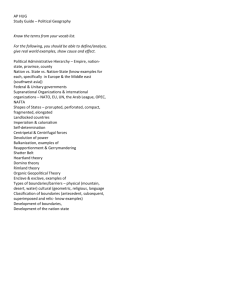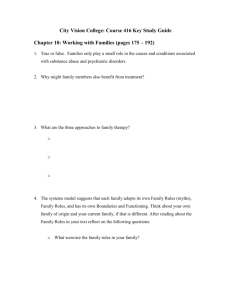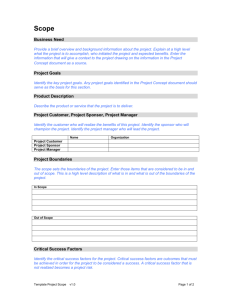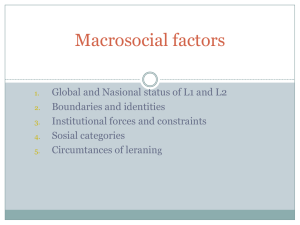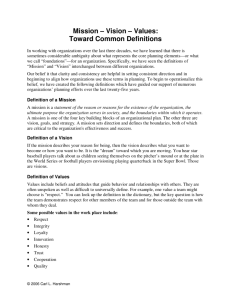How to Set Healthy Boundaries
advertisement
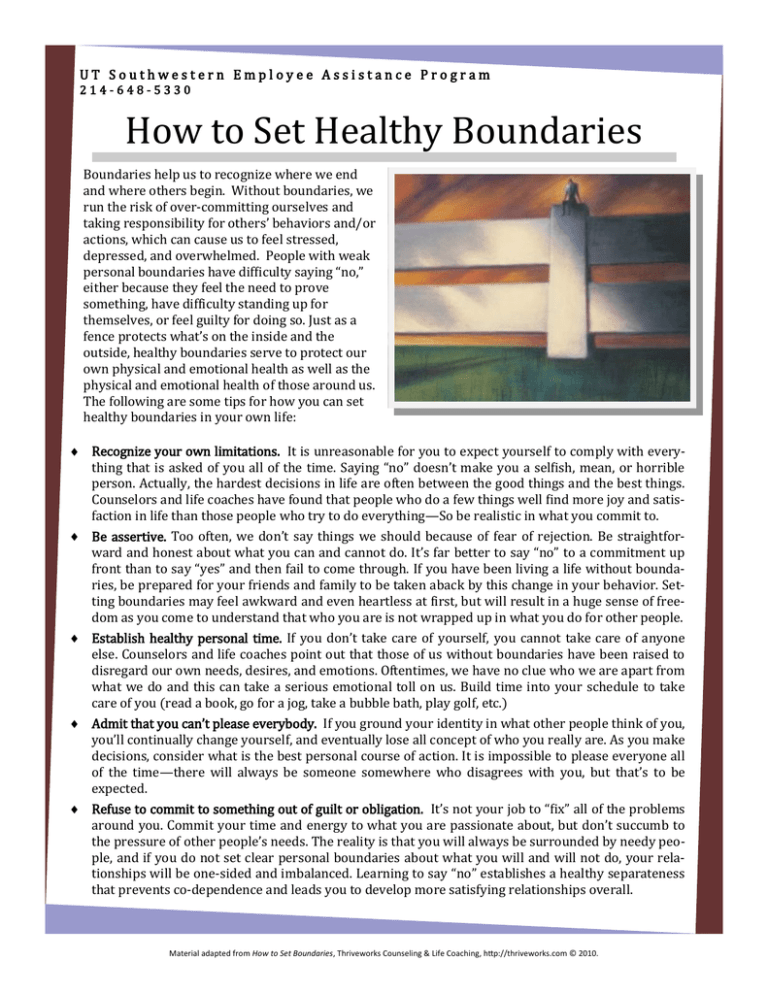
UT Southwestern Employee Assistance Program 214-648-5330 How to Set Healthy Boundaries Boundaries help us to recognize where we end and where others begin. Without boundaries, we run the risk of over-committing ourselves and taking responsibility for others’ behaviors and/or actions, which can cause us to feel stressed, depressed, and overwhelmed. People with weak personal boundaries have difficulty saying “no,” either because they feel the need to prove something, have difficulty standing up for themselves, or feel guilty for doing so. Just as a fence protects what’s on the inside and the outside, healthy boundaries serve to protect our own physical and emotional health as well as the physical and emotional health of those around us. The following are some tips for how you can set healthy boundaries in your own life: Recognize your own limitations. It is unreasonable for you to expect yourself to comply with everything that is asked of you all of the time. Saying “no” doesn’t make you a selfish, mean, or horrible person. Actually, the hardest decisions in life are often between the good things and the best things. Counselors and life coaches have found that people who do a few things well find more joy and satisfaction in life than those people who try to do everything—So be realistic in what you commit to. Be assertive. Too often, we don’t say things we should because of fear of rejection. Be straightforward and honest about what you can and cannot do. It’s far better to say “no” to a commitment up front than to say “yes” and then fail to come through. If you have been living a life without boundaries, be prepared for your friends and family to be taken aback by this change in your behavior. Setting boundaries may feel awkward and even heartless at first, but will result in a huge sense of freedom as you come to understand that who you are is not wrapped up in what you do for other people. Establish healthy personal time. If you don’t take care of yourself, you cannot take care of anyone else. Counselors and life coaches point out that those of us without boundaries have been raised to disregard our own needs, desires, and emotions. Oftentimes, we have no clue who we are apart from what we do and this can take a serious emotional toll on us. Build time into your schedule to take care of you (read a book, go for a jog, take a bubble bath, play golf, etc.) Admit that you can’t please everybody. If you ground your identity in what other people think of you, you’ll continually change yourself, and eventually lose all concept of who you really are. As you make decisions, consider what is the best personal course of action. It is impossible to please everyone all of the time—there will always be someone somewhere who disagrees with you, but that’s to be expected. Refuse to commit to something out of guilt or obligation. It’s not your job to “fix” all of the problems around you. Commit your time and energy to what you are passionate about, but don’t succumb to the pressure of other people’s needs. The reality is that you will always be surrounded by needy people, and if you do not set clear personal boundaries about what you will and will not do, your relationships will be one-sided and imbalanced. Learning to say “no” establishes a healthy separateness that prevents co-dependence and leads you to develop more satisfying relationships overall. Material adapted from How to Set Boundaries, Thriveworks Counseling & Life Coaching, http://thriveworks.com © 2010.

